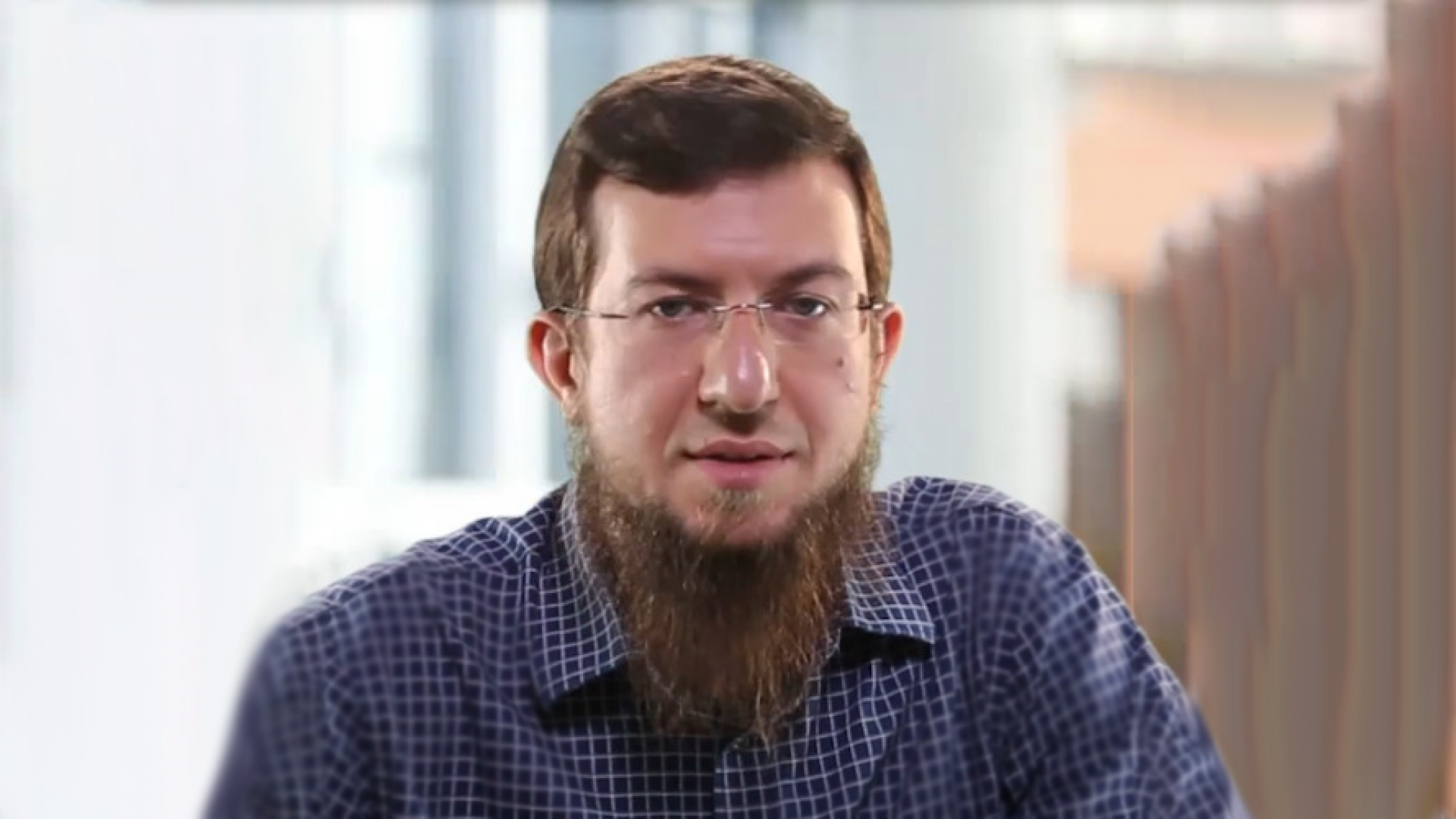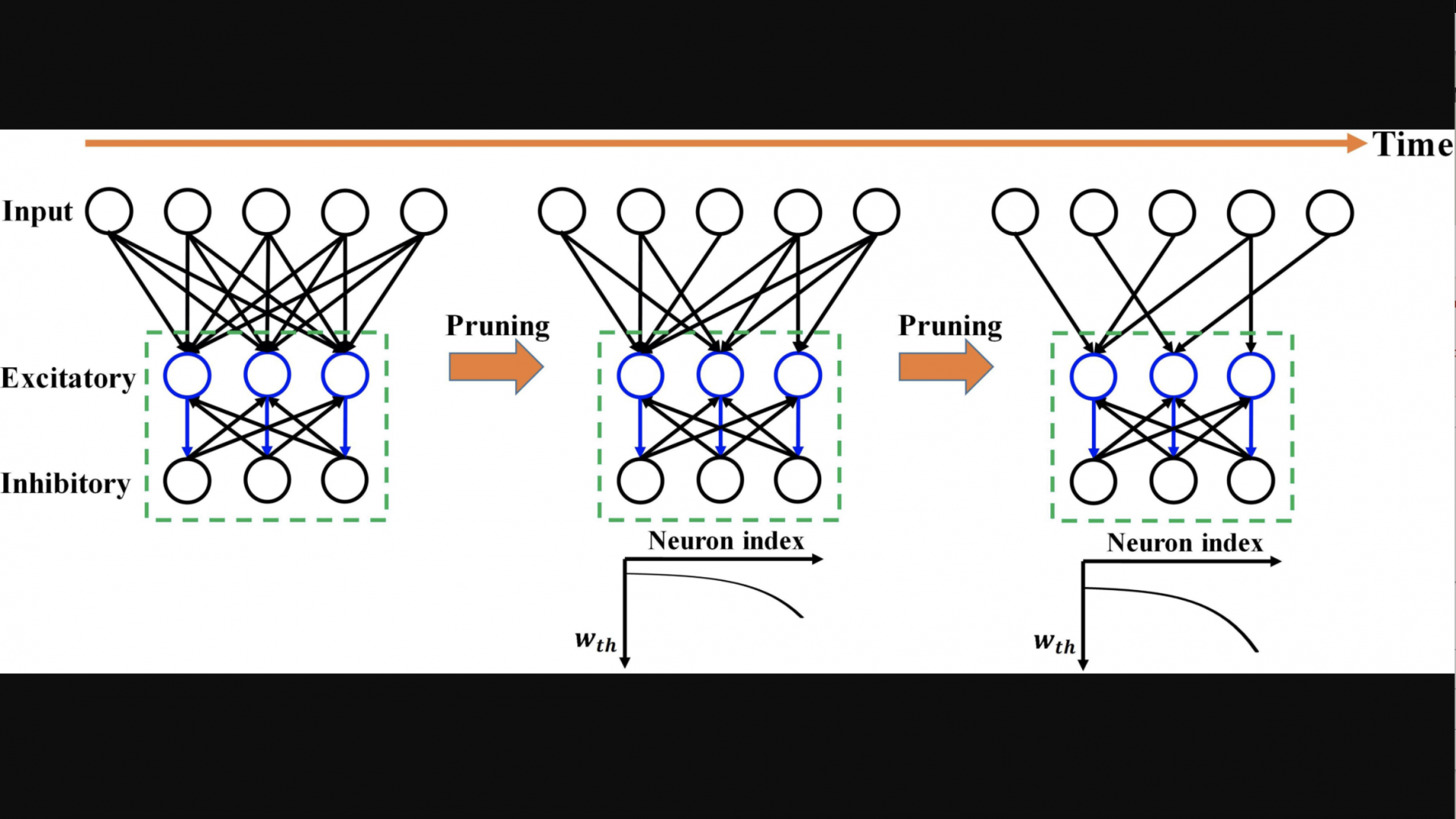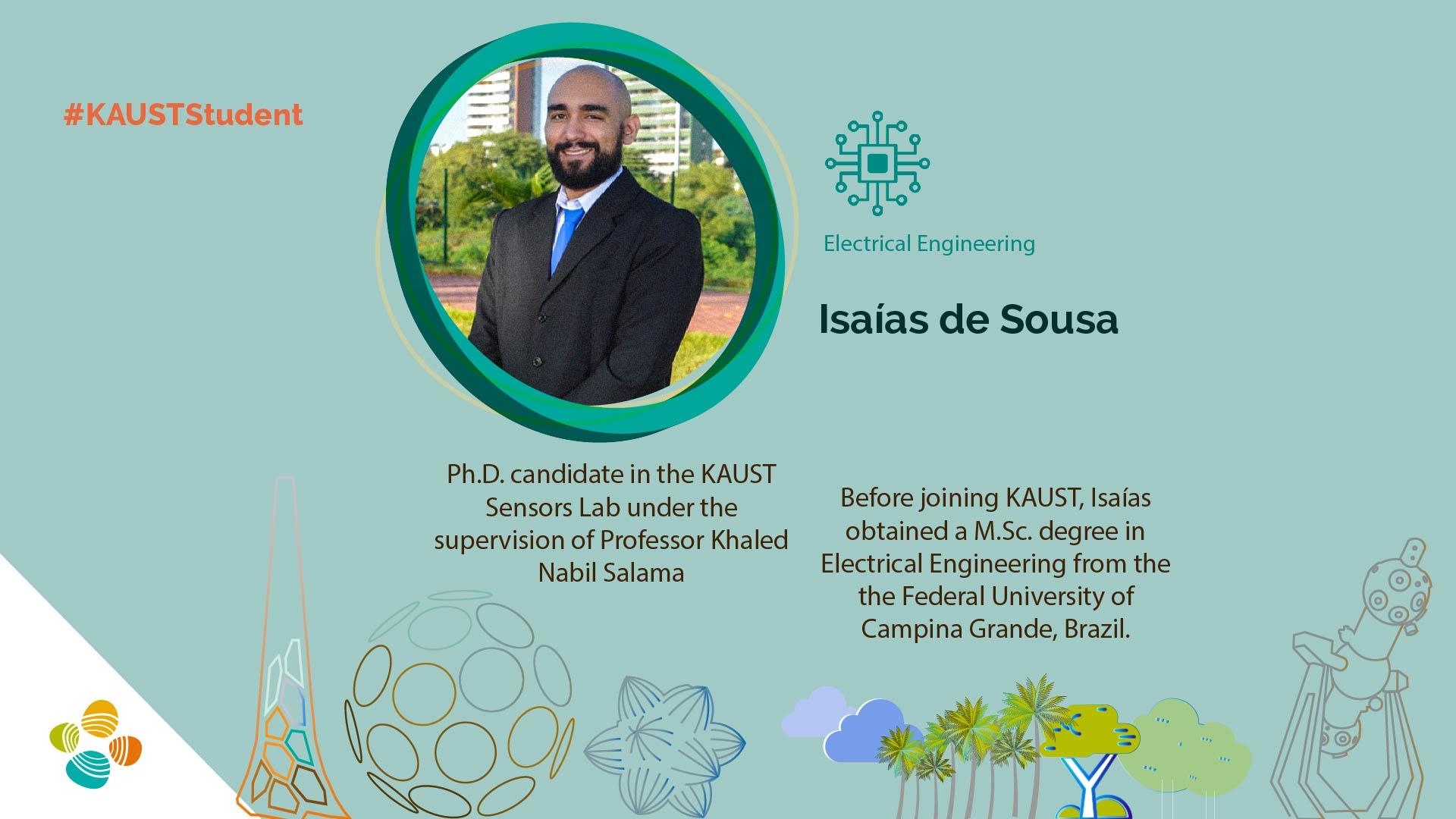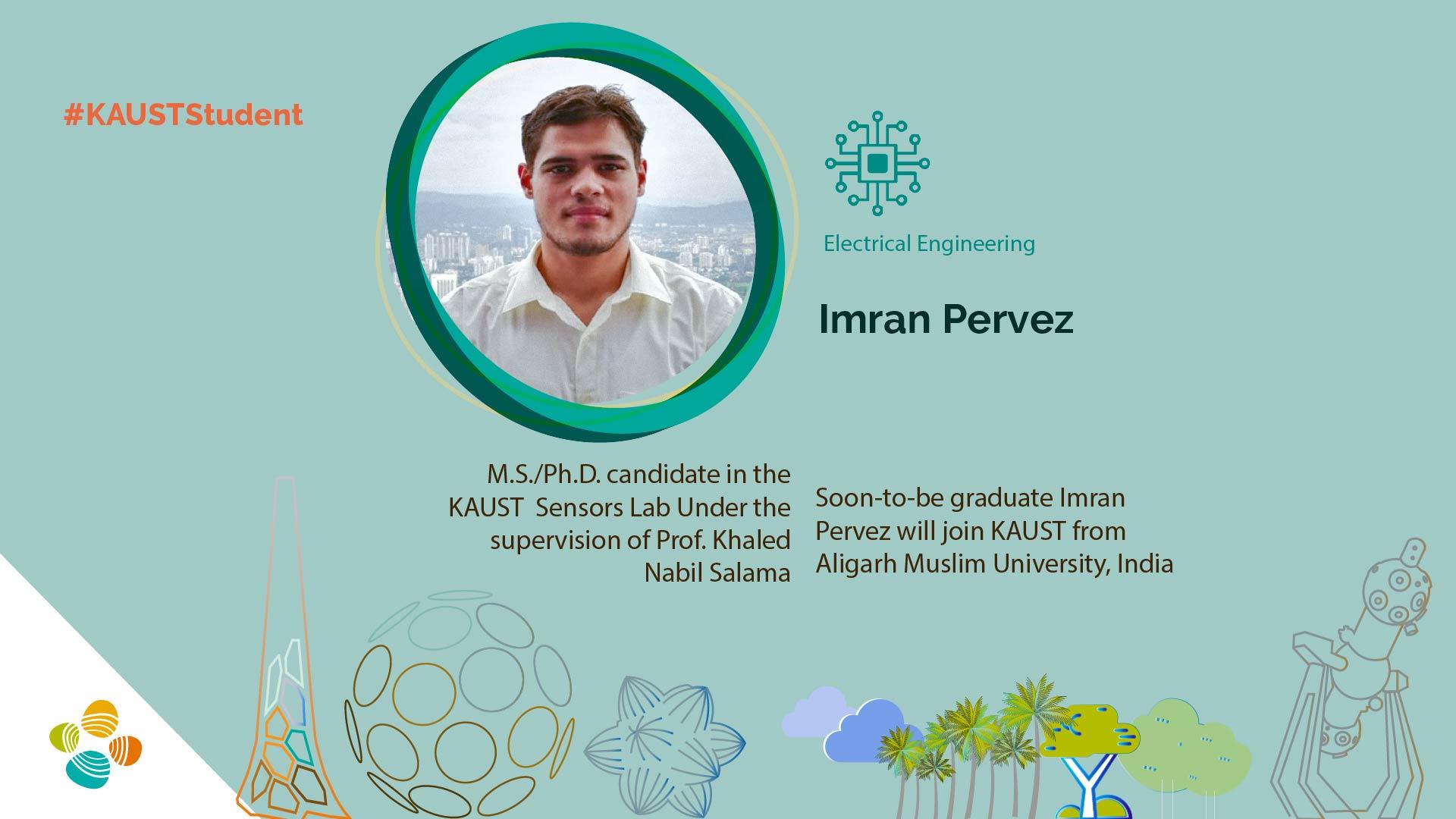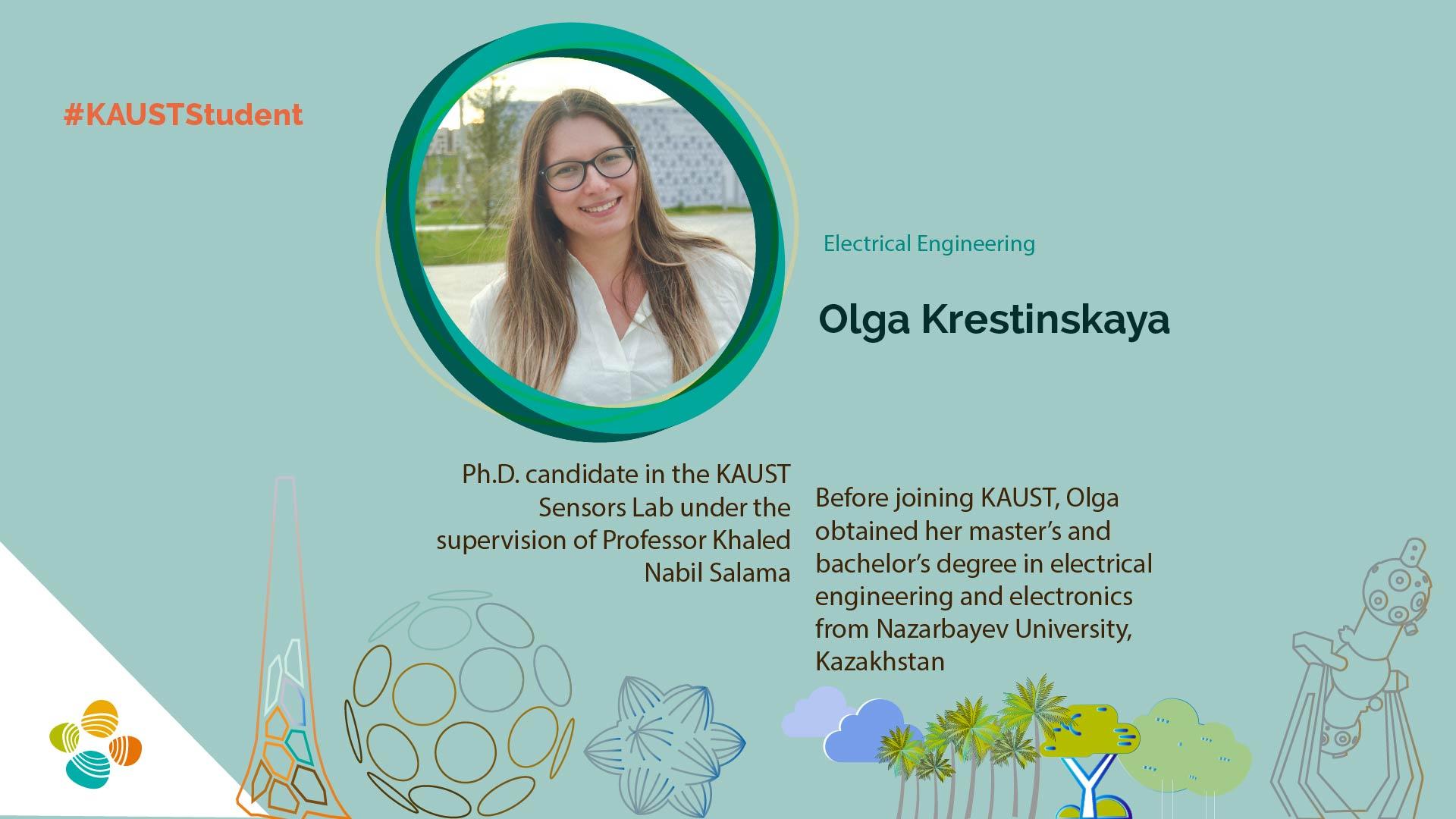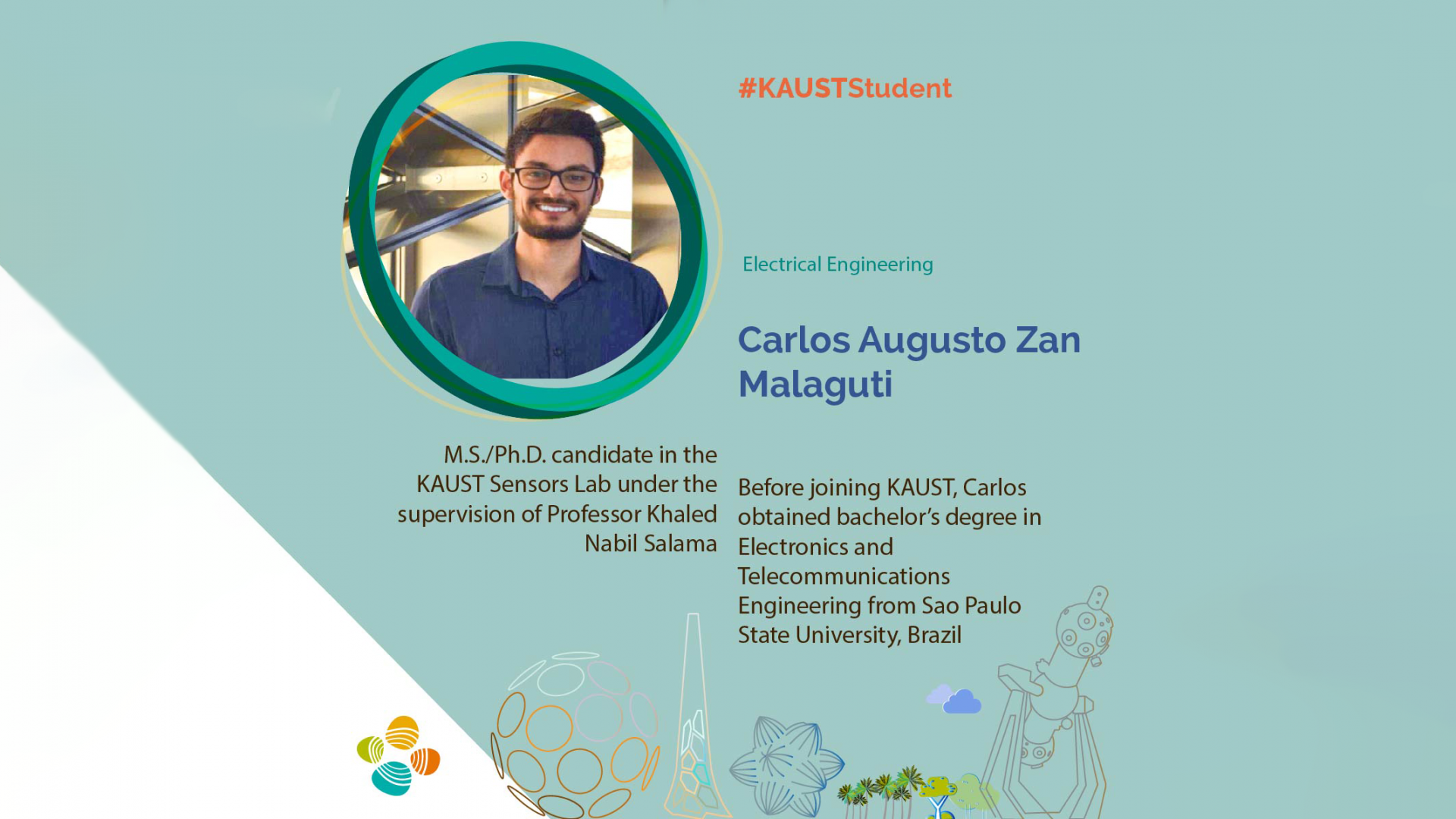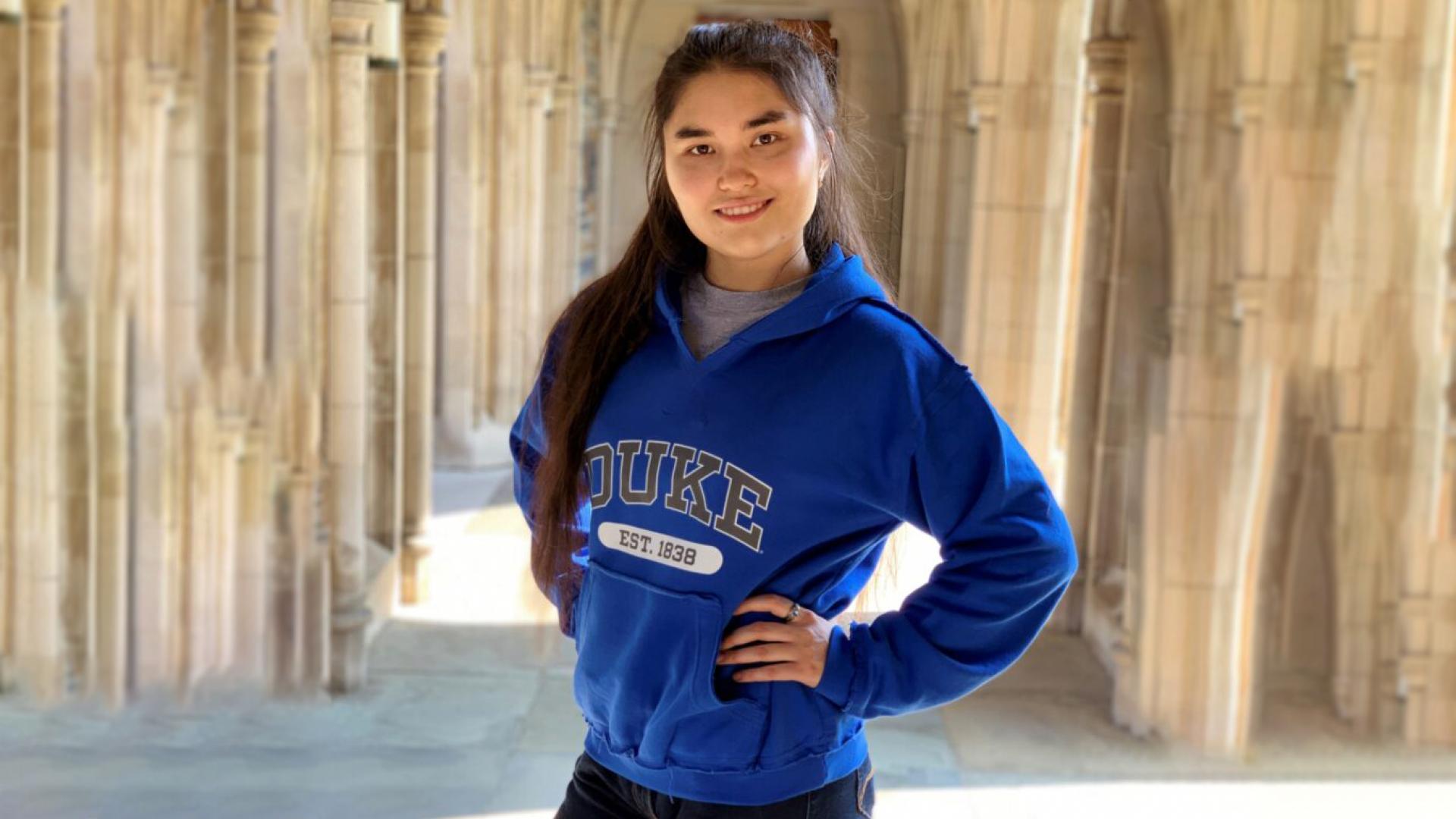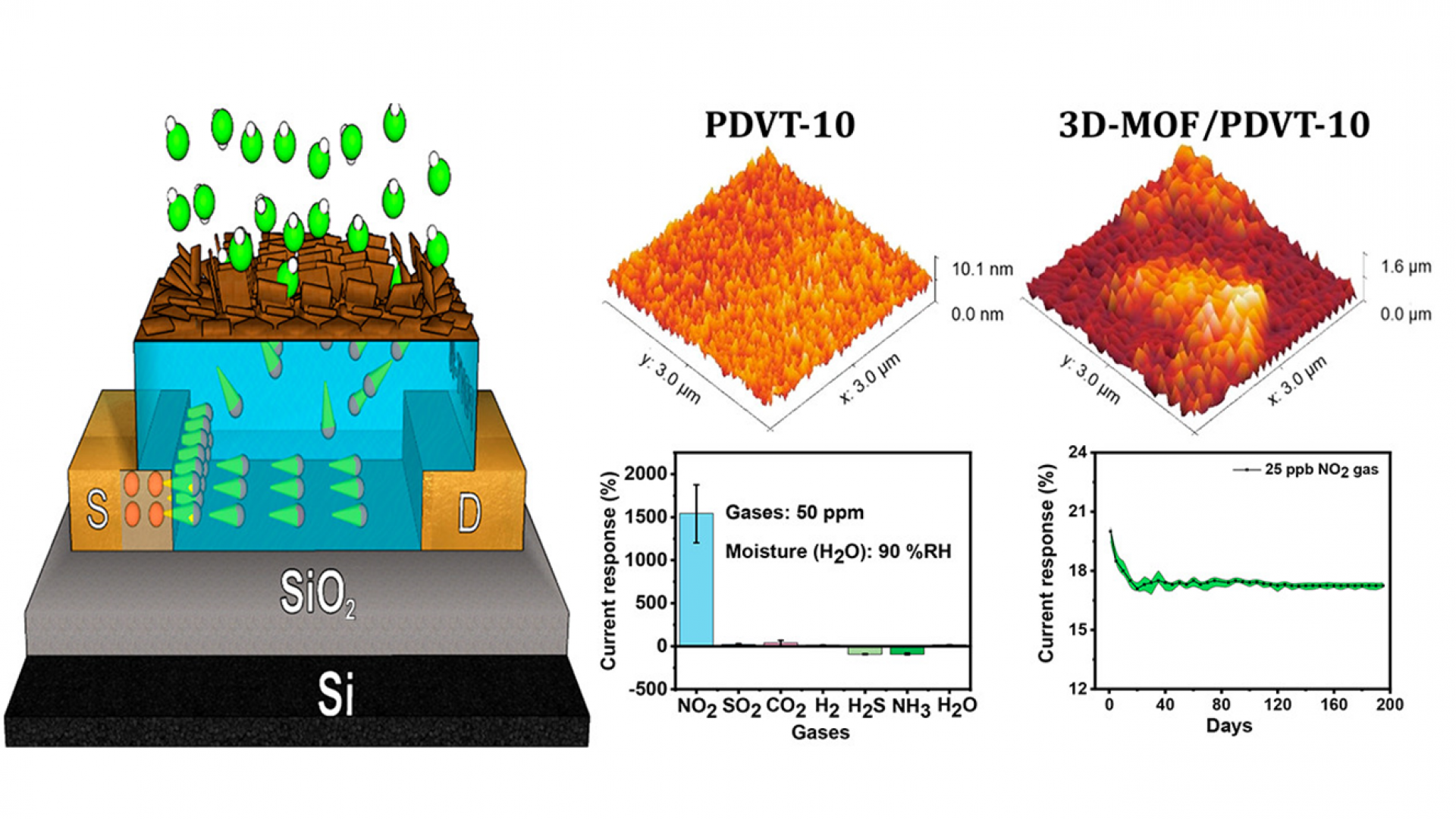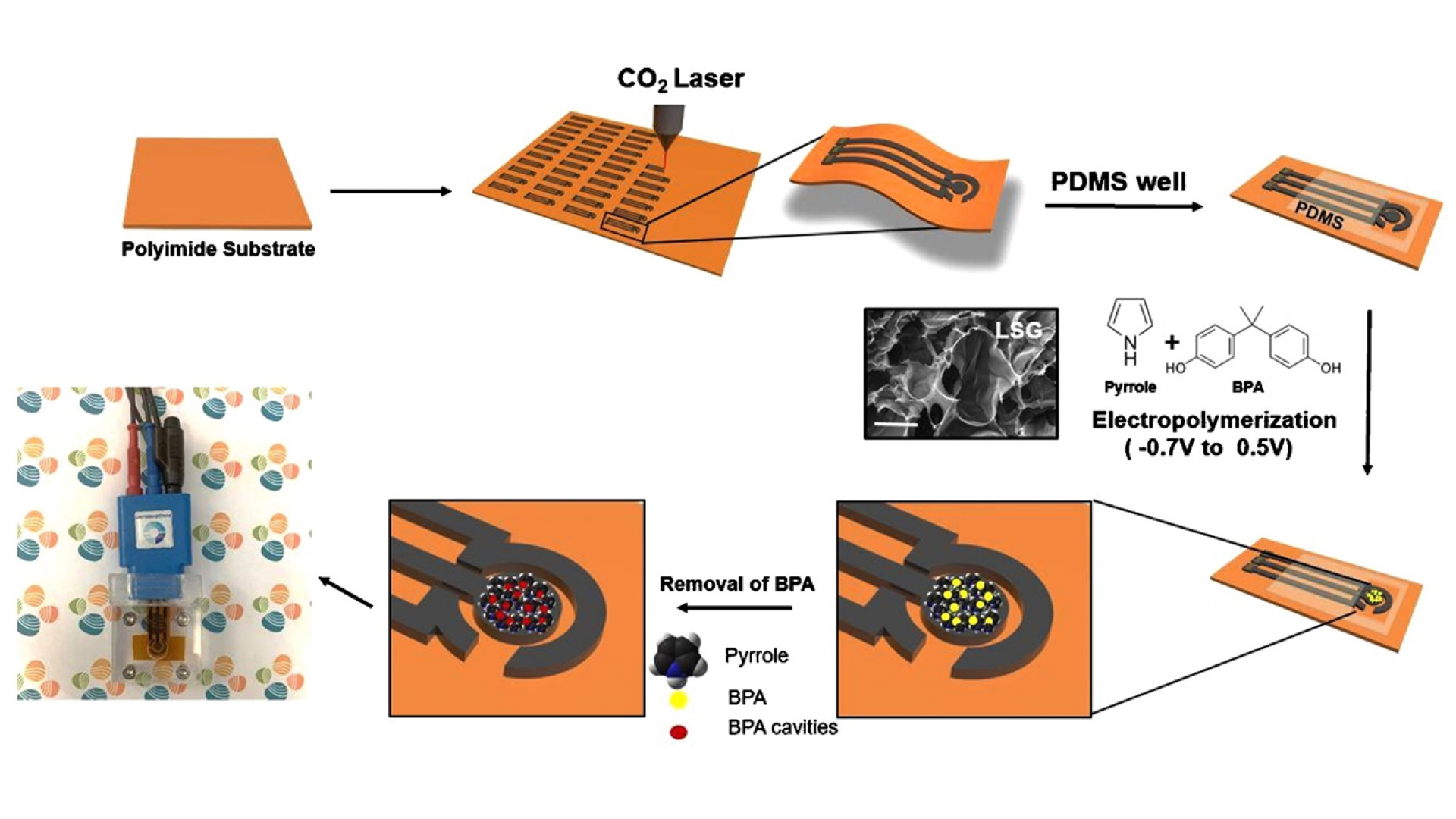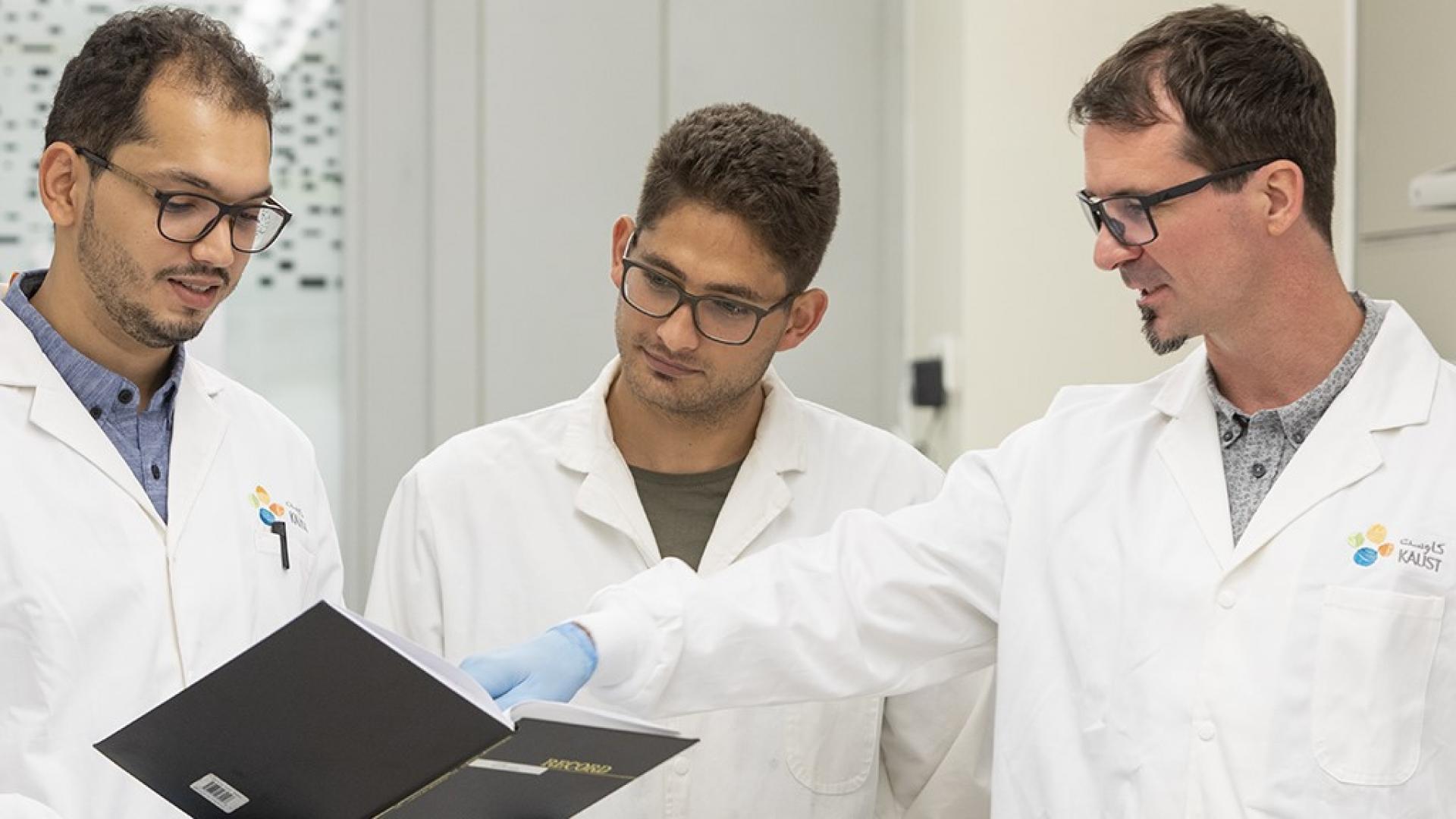An assistive technology uses magnetic skin to support freedom of movement for people with quadriplegia.
Congratulations to Electrical Engineering alumnus Hesham Omran, Ph.D. ’15, on receiving Egypt's prestigious State Encouragement Award in Engineering Sciences. Dr. Omran, an Assistant Professor at Ain Shams University, was honored by Egypt’s Academy of Scientific Research and Technology (ASRT) as a 'distinguished scholar younger than 40'.
Wenzhe Guo, et al., "Unsupervised Adaptive Weight Pruning for Energy-Efficient Neuromorphic Systems." Frontiers in Neuroscience 14, 2020, 1189.
Laser writing breathes life into high-performance sensing platforms.
Isaías de Sousa is an electrical engineering graduate from Brazil. He obtained his master's degree from the Federal University of Campina Grande and his bachelor's degree from the Federal University of Piauí, Brazil, respectively. Isaías will join KAUST in the fall of 2020 as a Ph.D. candidate in the KAUST Sensors Lab under Professor Khaled Nabil Salama's supervision.
Soon-to-be graduate Imran Pervez will join KAUST from Aligarh Muslim University, India. An initial reference from a friend piqued his initial interest in joining KAUST. This interest in joining was solidified by an inspiring interaction with Professor Khalid Nabil Salama, which further convinced Pervez to join KAUST.
Olga Krestinskaya, from Kazakhstan, obtained her master’s and bachelor’s degree in electrical engineering and electronics from Nazarbayev University, Kazakhstan. She is the recipient of the IEEE Circuits and Systems (CAS) society pre-doctoral award in 2019 and will join KAUST in the fall of 2020 as a Ph.D. candidate in the KAUST Sensors Lab under the supervision of Professor Khaled Nabil Salama.
Carlos Augusto Zan Malaguti, 23, from Brazil, obtained his bachelor’s degree in electronics and telecommunications engineering from Sao Paulo State University (UNESP). Carlos will join KAUST in the fall of 2020 as an M.S./Ph.D. candidate in the KAUST Sensors Lab under the supervision of Professor Khaled Nabil Salama.
She loves watching films not for the plot, but in order to rethink her beliefs. She is 22, she graduates from the School of Engineering in the capital. Adilya Bakambekova may seem ordinary: she loves walking in the park, powerlifting, taking care of her five-year-old wiener dog.
In today’s world, it should come as no surprise that plastic dominates the products that we rely on each and every day. From our technology devices, to our water bottles, plastic is almost always an integral structural component.
An integrated detector device could form the basis of a distributed air-quality sensor network.
Saravanan Yuvaraja, et al., "Realization of an Ultrasensitive and Highly Selective OFET NO2 Sensor: The Synergistic Combination of PDVT-10 Polymer and Porphyrin–MOF." ACS Applied Materials & Interfaces 12 (16), 2020, 18748.
Nanomaterial-based electronic device monitors a key heart health biomarker.
Tutku Beduk, et al., "One-step Electrosynthesized Molecularly Imprinted Polymer on Laser Scribed Graphene Bisphenol A Sensor." Sensors and Actuators B: Chemical 314, 2020, 128026.
Imagine if there was a revolutionary wearable technology that could enable the user to open doors or operate machinery with a simple wave of their hand or a mere blink of their eye? What people might not realize is that this contact-free human-machine technology already exists—and it has been developed right here in a laboratory at KAUST.
